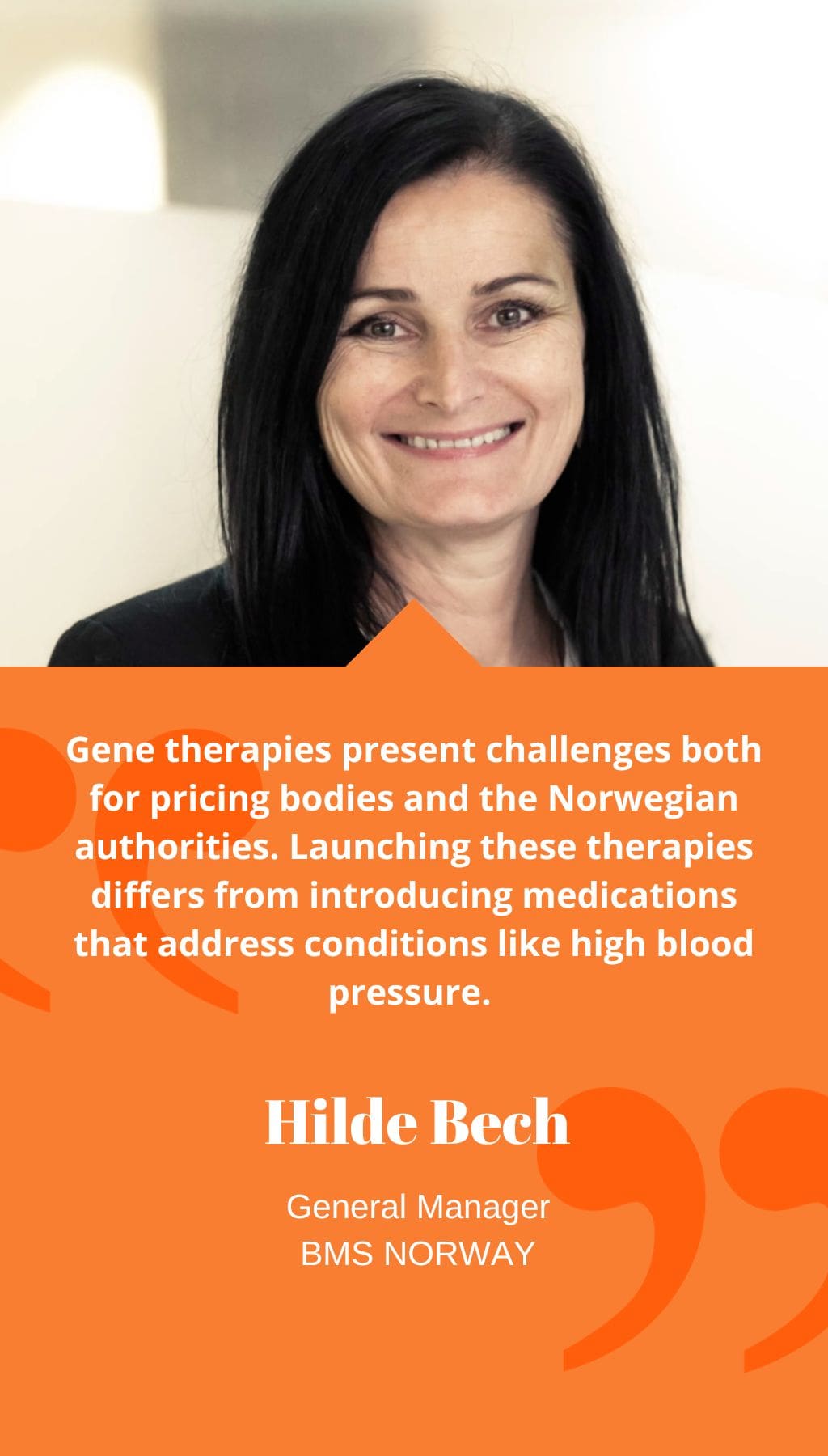
- Norway | 30 November 2020

How is BMS organized in Norway today, and what led to the transition from a Nordic organization to a more localized structure?
BMS used to operate as a Nordic organization, with centralized leadership and business units across the Nordic countries. However, it became apparent that market access situations were highly localized and varied significantly between countries. Recognizing the need to focus on specific markets and bring innovations to them, we shifted away from the Nordic structure and became a Norwegian organization in 2013. While we still have a hub in Stockholm for shared enabling functions like finance and HR, all operational, commercialization, medical, and access functions are now based in Norway.
What distinguishes Norway’s healthcare system from those of Denmark and Sweden?
While there are similarities between the healthcare systems of Norway, Denmark, and Sweden, one major difference lies in the political nature of decisions to bring new drugs to market in Norway. The decision-making process in Norway is highly political and takes place as part of a national conversation. The principle of equality is deeply ingrained in Norwegian politics, which means that any new drug approved must be accessible to everyone, regardless of income or location. Therefore, every decision to bring a drug to market is made with the entire population in mind.
Equality serves as the backbone of Norwegian society, reflecting a social democratic approach where individuals contribute what they can and receive what they need. Consequently, once a drug is approved in Norway, there is widespread adoption and utilization. However, gaining approval is a challenging process.
How is BMS Norway managing the global merger with Celgene, and what challenges have arisen, particularly due to the COVID-19 pandemic?
Our success and competitive advantage are rooted in having the best and brightest professionals in the industry. They bring a personal touch to everything we do. However, the COVID-19 pandemic has posed significant challenges. Building a new company culture has been demanding, as remote work has been the norm for an extended period. Nonetheless, we recently had a full day of face-to-face interaction, focusing on our work environment and the evolution of our future as a unified team. This ongoing process is an integral part of our strategic plan.
With the recent approval of Zeposia by the Norwegian Decision Forum, what preparations is BMS undertaking for its launch in Norway?
We are incredibly excited about the upcoming launch of Zeposia. Typically, bringing a new drug to market takes several months. We have assembled a skilled team and are planning a soft launch on October 16th. Our objective is to engage with the appropriate stakeholders, including patient organizations, as this collaboration benefits all parties involved.
Even before the COVID-19 pandemic, we extensively utilized remote meetings in Norway due to the country’s vast size, making travel time-consuming and challenging. Webcast meetings and training sessions conducted by specialists and thought leaders have become and will continue to be widely used.
Is Norway an important player for BMS Europe in terms of clinical trials, and what efforts are being made to increase the number of trials conducted in Norway?
Clinical trials hold immense importance for both BMS and the patients who gain early access to innovative treatments. BMS conducts a significant number of clinical trials in Norway and stands as one of the most research-intensive companies in the country. By closely collaborating with Norway’s university hospitals and research community, we have successfully attracted Phase 1 trials to the country. There is a strong drive to increase the number of clinical trials conducted in Norway, but this is dependent on factors such as expertise, technological resources, and patient availability.
With the merger bringing innovative regenerative medicines, including CAR-T therapies, into BMS’ portfolio, how will these medicines be introduced to the Norwegian market considering the challenges they pose?
Gene therapies present challenges both for pricing bodies and the Norwegian authorities. Launching these therapies differs from introducing medications that address conditions like high blood pressure. Gene therapies are entirely new and different. Consequently, the Norwegian authorities must approach these drugs with a fresh perspective. Different payment models focused on value rather than price need to be explored. We are enthusiastic about the possibilities of creating the medicine of the future.
What are BMS Norway’s expectations for 2020 and 2021 in terms of growth and impact?
BMS Norway is poised to become one of Norway’s largest companies in terms of value. We are experiencing growth in the Norwegian market and currently have nearly 40 employees, with plans to expand to 50 within the next year or two. As a lean organization with a flexible workforce, we are determined to deliver on our commitments for 2020.
How does BMS Norway ensure its significance at the European level, despite being a small country?
While Norway may be a small country, BMS Norway has demonstrated greater innovation and excellence than we often realize. This has become particularly evident during the COVID-19 pandemic. To maintain our significance at the European level, we must improve in showcasing our accomplishments because we are doing remarkable things. We find ourselves in a much better position now than we were three or four years ago.
As a female leader, what lessons would you like to share with the younger generation of female leaders?
BMS is a company that truly values diversity. Some female leaders may feel the need to emulate male leaders, but many bring new perspectives and ways of thinking. The Norwegian pharma industry already has several female leaders. My advice to younger female leaders is to seize every available opportunity. Whenever you feel in control, reach for something new and make yourself visible. Embrace the abundance of opportunities and always remember that you are better than you think you are.














